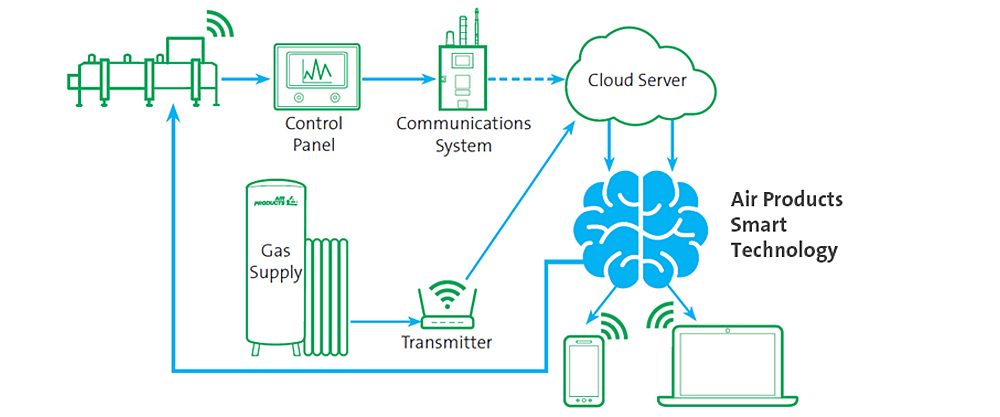The value of data –
do you have the skills to realise its potential?
Wherever you look nowadays, the message is clear – data is king. It's increasingly clear however that it's not how much data you have but what you do with it that counts!
In a bid to increase productivity and streamline operations, we're seeing a real growth in demand for data management from customers seeking greater insight into the efficiency of their production lines. The reality, however, is that providing that data is only part of the solution. Production lines also need to understand how to interpret the information available – and in today's climate, that can be a real challenge.
We're all aware of some of the skills and labour challenges facing our sector. Analysis published earlier this year by the Food and Drink Federation, found that in the last year from July 2022, labour shortages have cost the industry an estimated £1.4 bn, due to loss of output. The unfilled vacancies affect a range of roles and skills, but particularly impact project engineers and engineering technicians. As a result, food businesses are calling for greater collaboration within the industry, and for the education sector to tackle labour shortages by offering pathways into the industry through a range of education programmes such as apprenticeships and university courses.
Our experience is that a more collaborative approach can make a real difference both in lessening the pressure on the engineers and technicians operating production lines and in helping plug the data skills gap.
It's so common for someone to say, 'I have all this data, but I don't know how to use or interpret it'. And that's the point. It's not just about providing the technology to capture data – although we do that, of course, in the form of Smart Technology. It's also about ensuring that we train operational teams on using the technology, that the data it generates is presented in an easy to interpret format, and that our teams are on hand to provide additional support when needed.
We've found, through our collaboration with customers that this joined-up approach really works.

Freshline® Smart Technology uses diagnostic sensors together with operating parameters to monitor cryogenic freezing operations remotely. It tracks key parameters to optimise processes based on advanced analytics and machine learning.
When integrated with our cryogenic freezers it can provide real-time and historical data via an easy reading dashboard, which can be remotely accessed both by our teams at Air Products and by our customers. Both teams reviewing and interpreting information works well and ensures we can help to train and develop in-house teams.
There's also scope to use this data to ease the pressure on operational teams. For example, we can create and save recipes to the freezer, and this can be monitored through the Air Products Smart Technology system to ensure that the correct operational and efficiency parameters are maintained.
What's great is that the system can store this - and any historical data, giving our customers the reassurance that they are not losing knowledge each time an operator leaves and can continue production without interruption. It also reduces the opportunity for human error by avoiding the need to manually adjust operating conditions or add information every time a new product is loaded or there is a new operator.
Whatever type of food production you're in, the holy grail is, of course, better efficiency, productivity, and sustainability. Introducing data-driven technologies to manufacturing processes can help to deliver, but it must be done hand in hand with relevant upskilling and training, otherwise we risk a data mountain that our food manufacturers are not equipped to climb.





